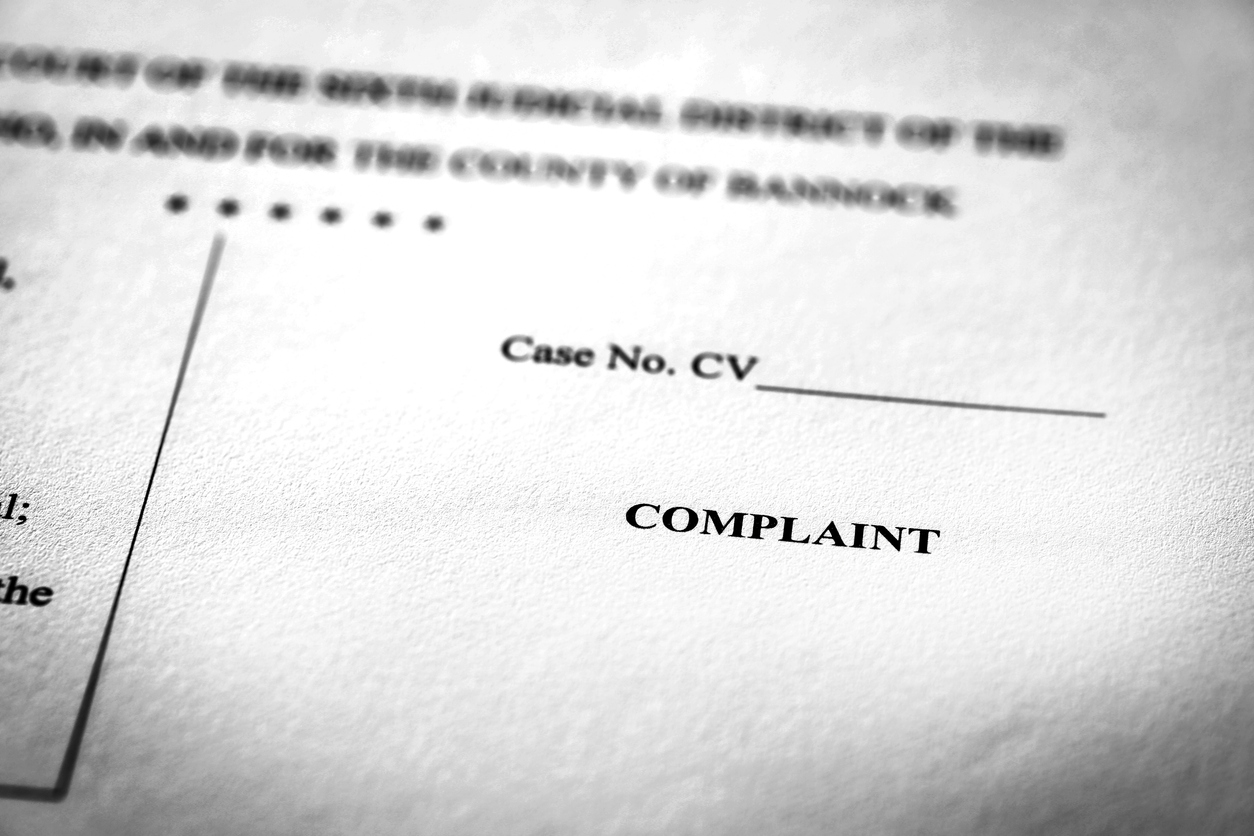The amount of time one has to bring a lawsuit is limited by the law. Each state has established statues which define the amount of time provided to file suit for particular causes of actions based on particular circumstances. Recently, I learned more about how important and valuable the pre-litigation correspondence file can be when the insurance company appeals a case based on the allegation that the lawsuit was filed too late.
Farm Bureau General Insurance Company of Michigan appealed a decision from a trial court in Mecosta Circuit Court in Michigan. In the appeal, Farm Bureau alleged various bases, including that the insured failed to file suit in the time period allowed under the policy and as provided under Michigan’s statute. The appellate court looked at the record of the case and affirmed the lower court’s ruling in favor of the policyholder. Two of the main issues raised in the original litigation were whether the suit was brought during the proper timeframe and when did Farm Bureau effectively deny the claim. Farm Bureau argued unsuccessfully that the claim could not be brought because suit was filed long after the claim was denied. Farm Bureau attempted to dispose of the case by filing a motion for summary disposition. The trial court said the timing of the lawsuit was an issue for the jury to decide, but Farm Bureau failed to re-raise this issue during the trial. The Appellant relied heavily upon the testimony and exhibits which related to the pre-litigation correspondence between the parties. The letters written during the adjustment of the claim and the language contained in the letters were extensively reviewed by the Court and quoted in the recent opinion.
This claim arose out of a fire loss at the Bundy Farmhouse in rural Michigan. The farmhouse was a total loss. The cause of the fire was listed as arson. Interestingly, the court wrote: “The cause of the fire was ‘undetermined’ because it could have been accidental or suspicious. It was thought to have been set by a serial arsonist in the area.”
The claim arose in March of 2003. It was not resolved by Farm Bureau and the insured was forced to file suit and take the case all the way to the jury. The jury responded favorably to the policyholder and awarded the following:
$3,000 for furnishings, $7,000 for other personal property, and $15,000 for lost rents. The trial court issued a judgment on the verdict for $69,500, reflecting the $50,000 policy limit on the building, $10,000 policy limit on lost rents, $3,000 for landlord furnishings, $2,500 policy limits for other personal property, and $4,000 for the stipulated debris removal.
No surprise, the insurance company appealed the ruling for many reasons, and the Court in entered this recent 2-1 opinion.
One of the reasons for the appeal related to whether the insureds filed suit in time under the law in Michigan at the time of the loss. This is quite a fact specific issue because of Farm Bureau’s actions.
The lawsuit against Farm Bureau was filed on October 5, 2004. In Michigan, the statute MCL 500.2833(1)(q) (2004) provided:
(1) each fire insurance policy issued or delivered in this state shall contain the following provisions:
(q) That an action under the policy may be commenced only after compliance with the policy requirements. An action must be commenced within 1 year after the loss or within the time period specified in the policy, whichever is longer. The time for commencing an action is tolled from the time the insured notifies the insurer until the insurer formally denies liability.
The claim was submitted to Farm Bureau promptly after the loss, but the insurance company indicated the claim would not be covered under the policy because:
‘nobody had lived in the house as a domicile since November 2001.” Under the ‘Increase in Hazard’ provision, the policy provided that defendant was not liable for losses occurring ‘[w]hile a described building, whether intended for occupancy by owner or tenant, is vacant beyond a period of sixty consecutive days or is unoccupied beyond a period of six consecutive months’ (Denial letter 1)
In April of 2003, the insured family hired Steve Shipper, the president and owner of Associated Adjuster’s Inc. to assist them as a public insurance adjuster for the fire loss.
I was able to speak to Stewart Shipper, and he said that Farm Bureau was one of the few carriers in Michigan that that apply the “vacancy exclusion” to fire losses. He said most policies exclude coverage for frozen pipes and vandalism if the property is abandoned, but Farm Bureau’s policy is more restrictive and the exclusion even applies to fire losses.
After being hired, Shipper promptly advised the insurance company in writing that Farm Bureau was wrong about the status of the property and provided additional documentation supporting the claim. Shipper sent a proof of loss and a contents inventory to Farm Bureau. Farm Bureau did not accept the proof but wrote back and said “this is not a denial of your claim.” Shipper documented the file and continued to write back to the carrier. Farm Bureau later sent a letter on June 26, 2003, that said “we feel we are justified in our denial of the claim.” (Denial letter 2) Four days later, Farm Bureau said it had reviewed additional information and was still denying the claim. (Denial letter 3)
If Farm Bureau was reviewing information, the previous denials must have been withdrawn. Farm Bureau may have been calling the claim “denied,” but its actions spoke louder than their words.
Shipper was able to convince the insurance company to respond to his letters, and, finally, Farm Bureau visited the loss site with Shipper in October of 2003. During this October meeting, the insurance company asked for utility records and property tax bills. Four days after the meeting, Shipper sent the requested records with a transmittal letter to help Farm Bureau with its claim evaluation. However, the final letter of denial came from Farm Bureau on the same day the records were sent. (Denial letter 4) Obviously, Farm Bureau poured over the tax records and utility bills.
The Court reviewed the facts of the case and looked at the language of the letters. The Court did not have to determine whether the lawsuit was timely filed, but whether the lower court handled this issue the right way. The Appellate Court agreed with the trial court’s determination that the issue was not a matter of law and was an issue of fact. The Court made this determination based on the testimony and documentation of the claim provided by Shipper.
What I found interesting, was just how much detail and information was listed by the court about the public adjuster. The opinion gives us a look into just how important a letter can be and how important it is to write to the insurance company and save the letters they send you. The insurance company argued the denial was an unbroken denial which began in April of 2003 and continued. The Court said “We agree with plaintiffs that the April 2003 denial was withdrawn.” The Court referenced the public adjuster’s affidavit which supported the position that the formal denials were withdrawn each time Farm Bureau decided to investigate/ evaluate the circumstances of the claim. The conduct of the parties, which was established in the correspondence file of the public adjuster, shows Farm Bureau withdrew the denials and continued to investigate the claim throughout most of 2003.
The Court ruled there was a question of material fact regarding this issue, and it seems , that the Court was able to evaluate that this issue because of the paper trail created by public insurance adjuster- Stewart Shipper.
After reading this opinion, I thought it was refreshing to see a court give credit to the public adjuster, rely on the information he provided to reach a favorable decision for policyholders, and explain the PA’s work in the opinion.
You can read the appellate court decision by clicking here.



